Financial Accountability: Critical step towards new future
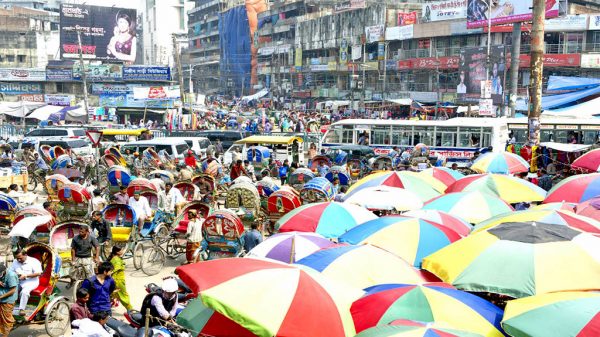
BANGLADESH is at a pivotal moment in its history. The recent student-led uprising that toppled the Awami League government on August 5 and the installation of an interim government have reignited the auspicious moment. Bangladeshis expect and hope for necessary reforms to lead the nation towards a brighter and just future for all. However, for the aspirations to take foundation in Bangladesh, we must first address the issues of widespread corruption, manipulation, illegal means of money accumulation and power grab, injustice and discrimination. No other reform can succeed without a fundamental change in the financial governance system.
It cannot be achieved without establishing an essential tool for accountability because the nation’s history shows that we have failed to establish a fundamental tool for financial transparency and accountability. The deep-seated corruption that has for long plagued Bangladesh, from the political sphere to everyday life, will continue to undermine any efforts for changes unless a new, robust framework for accountability is implemented to ensure that every citizen is held accountable for their financial activities. But the potential for positive change is within our reach. If we work keeping to wisdom and practicality, we can build a new Bangladesh where financial accountability would be the norm and justice and equality would not just be ideals but everyday realities.
Financial accountability for all
COMPREHENSIVE financial accountability is the essential first step towards a meaningful reform. Without it, any efforts to reshape the nation’s political, social or economic landscape will not be successful and the deeply rooted corruption that has paralysed progress will continue. Financial transparency will root out corruption and create a culture of levelling the playing field, making merit, hard work and integrity the paths to success. By curbing illegal financial practices and wealth accumulation, the nation can begin to restore public trust and foster a more inclusive society. The time for reform is now. If this had not happened or if the interim government had failed to do so, this would never have occurred under a political government. This interim government has the first and most historic opportunity to act and put forward this kind of primary fundamental and essential framework tool. The people have voiced their demands for changes and the start by ensuring that every financial transaction is open to scrutiny.
Bribery, manipulation, the seizure of land and property and illegal financial dealings have normalised the accumulation of wealth through dishonest and illegal means. Institutions such as the National Board of Revenue, the Anti-Corruption Commission, the police and the central banking system have failed to curb the practices effectively. As a result, without bribes and illegal means, no one can even think of getting or doing something. It has become an accepted norm in society. Earning illegal money or bribery and getting rich is not shameful. It is, however, considered a success. Society becomes paranoid about becoming rich by any means and getting into power. It is common to see individuals in low-paying positions, such as government clerks or drivers, amass significant wealth disproportionate to their official income. Similarly, politicians and bureaucrats frequently accumulate multiple property, crores of takas, property in other countries and substantial assets without legal or transparent explanation. These discrepancies indicate a broken system where financial accountability is absent, corruption thrives and the government and banking sectors are about to collapse. After the uprising, the administration found this stark reality. This inequality erodes public trust in governance, making meaningful progress impossible.
To reverse this trend, Bangladesh must introduce a new framework. A new framework, a totally new agency, is needed that can effectively track, verify and regulate income, assets and spending across all sectors, all walks of life and all people from the president to those who are live in remote rural areas. This agency will work independently and investigate anyone within the Bangladesh boundary, never needing any permission from anyone. If discrepancies are found, an agent of any level will open the investigation without fear. Such a system would ensure that every taka earned, spent or saved is transparent and traceable, making it impossible for individuals to gain unfair advantages through illegal means.
To care for such a robust system, Bangladesh must look at examples from other countries that have successfully eradicated corruption. In nations like Canada, stringent mechanisms ensure that individuals live within their means and accumulating wealth through illegal or unethical practice is nearly impossible. However, many forms of corruption and manipulation are being imported by the immigrant population in Canada. Transparency in financial activities is enforced and citizens — whether rich or poor, politically connected or not — are treated equally under the law. This level of financial accountability has proved effective in reducing corruption to near-zero levels, specifically in government offices, providing a model that Bangladesh can follow.
New financial framework
IN BANGLADESH, a culture of wealth accumulation through dishonest and illegal means has become normalised, leading many to believe that success is attainable only through corruption. An ideal and real-life practical example is the Canada Revenue Agency, which plays a crucial role in Canada’s governance by collecting taxes, enforcing compliance and ensuring transparency. It holds citizens accountable for their financial activities. In Bangladesh, a similar agency, the Bangladesh revenue agency perhaps, should start with a new mandate and from scratch. It should not be a reform. For information, a half of the work for this new framework and tool is already available in Bangladesh, which is the national identity database. All the data are there. Another new new number will now be created for financial reporting, tax returns and financial records like the social insurance number in use in Canada. This agency will be created to collect taxes, keep citizen’s financial records and activities, enforce compliance and implement new policies and procedures to oversee financial transparency and accountability. This new agency would track income, verify financial records and investigate discrepancies. This would require replacing the National Board of Revenue, which has struggled and failed to curb corruption. By doing so, the government could create an environment where transparency is not just encouraged but enforced with zero tolerance.
Linking financial activities to national database
BANGLADESH’S national identity database will be the backbone of this proposed financial governance framework. This framework will ensure financial accountability, offering a practical and effective solution to combat corruption and foster transparency. Every citizen aged above 18 will have financial transactions and all economic activities will be reported and linked to their new number and submit tax returns yearly. This would include regular income and any assets, purchases, or property acquisitions, whether tangible or intangible. Even individuals with no income will be required to submit tax returns annually. The returns will be a regulatory formality and an essential tool to access public services and government benefits such as unemployment allowances, old-age pensions, healthcare subsidies and other government services. This tool and framework will also be used for government planning for new policies and support services for citizens such as future schools, retirement benefits, creating employment and other social support services and economic planning based on income and demography.
This framework and tool will work with the support of technology, computer programming and artificial intelligence. This system will work as it does in many developed countries that have implemented this framework year after year. We will not blindly implement frameworks of other developed countries. Instead, we will apply it based on our culture, societal nature and values, economic structure, rural and urban economic activities, and governance system. A citizen buying land or receiving a significant remittance from abroad will be directly tied to their new identity number created from the national database. Similarly, the sale or purchase of non-transitory assets such as property or cars will also be linked to their identity numbers. These activities will be reviewed annually to ensure consistency and compliance with reported income through the tax return and other auditing means.
Moreover, the system will enable authorities to track financial activities of families and relatives through tax return submission. In Bangladesh, people commonly say that they receive money or land or property from parents, in-laws and others to evade taxes. In that case, it will be easy to verify the claims. No one can claim unexplained wealth by attributing it to gifts or support from families or in-laws. For instance, if a citizen states that they received money from a family member, the system will trace that transaction back to the family’s financial activities, ensuring a complete transparency. It will also bring transparency and accountability of donations to various political parties. There should be a limit and record of such contribution to parties based on the government’s policy.
This will effectively create a comprehensive financial audit system where all citizens, organisations and businesses are under the radar for compliance and accountability. It is important to note that if anyone is not doing wrong, they will not be punished in this system but will benefit from it. With the implementation of this framework, benefits will be attached to low-income earners and senior or vulnerable populations. This system will quickly detect them for support services such as old-age benefits, benefits for low-income farmers, people disabilities, those struggling for everyday support and other social benefits. Any discrepancies such as unexplained assets or income not aligning with declared earnings will trigger an automatic audit. If, for instance, a government employee suddenly acquires a property or receives large sums of money, an audit will be initiated to ensure that these assets are legitimate and have been adequately reported.
However, the current system may face challenges, including using new numbers. There are reports that national identity has been compromised and sold out outside. To address this, the national identity database will be strengthened with new, secure identifiers — new identity numbers that prevent fraud and misuse, ensuring that every financial activity is traceable and auditable. This way, new identity numbers based on the national identity database will streamline financial accountability and establish transparency to deter corruption, making it a foundational element for governance and social changes that the new Bangladesh hopes for.
Universal income reporting: A vital component of the new framework is that every citizen must file an annual tax return, regardless of income level. Even if someone has no income, they are still required to report, which will help build a comprehensive national database of income and assets and provide support services for those in need. This ensures that everyone, rich or poor, rural or urban, is held to the same standards, promoting fairness and reducing opportunities for bribery and manipulation. This will help the ministries to distribute social services based on income.
Transaction transparency: Every financial transaction should be scrutinised for consistency between income and expenses. When citizens buy land, deposit money or make significant purchases, the source of their income must match their financial activities. If unexplained wealth is detected, it will trigger an audit that could lead to penalties or prosecution. The government could freeze the assets and initiate legal proceedings if the source cannot be verified.
Mandatory income verification and declaration: Every citizen, whether an employee, business owner or public official, must verify their income and prove its legality. A politician owning several high-value property in Dhaka may have foreign bank accounts and send the children to expensive schools abroad. Under a new financial accountability system, this politician would be required to submit an annual report detailing all sources of income, including salaries, investments and business ventures. If the declared assets do not align with the politician’s official salary, which is often modest, this discrepancy would trigger an automatic audit. If members of parliament earning a salary of Tk 1,72,000 a month cannot explain how they own property worth several crores and property abroad, an investigation would be initiated to determine the legitimacy of their wealth. Similarly, this system would apply to every citizen, organisation or business entity suspected of amassing wealth beyond. Mandatory asset declarations ensure that public officials cannot engage in large-scale corruption without risking exposure.
Data analytics and audit mechanism: A robust use of data analytics and technology to monitor financial transactions and detect anomalies will be used. Advanced tools will analyse income, expenditures and bank transaction patterns to flag suspicious activities that may indicate corruption or fraud. Advanced data integration will work with another mechanism, such as using secure and advanced technology and integrating financial data with the new identity numbers based on the national identity database to ensure that every financial activity is recorded and can be audited. The data would be automatically linked, making it impossible for people to hide their economic activities or assets under false names or through intermediaries. If a government employee consistently makes large withdrawals from bank accounts without a plausible source of income, the system would flag this behaviour for further investigation. Random and targeted audits would be performed on both individuals and organisations to ensure compliance with financial regulations. A construction firm receiving large government contracts could be audited to ensure that all income and expenses are accurately reported. Any discrepancies, such as unreported income from bribes or kickbacks, would result in penalties and possible legal action.
Whistleblower protection programme: Although new to Bangladesh, whistleblower activities are common in many countries to help the government to crack down on illegal activities. Whistleblowers’ activities will be encouraged to support the new agency mandate. The new agency should establish a whistleblower protection programme to strengthen further the system. This would encourage citizens and employees to report financial misconduct without fear of retaliation. If government employees discover that their supervisor accepts bribes for processing permits, they could report this through the whistleblower programme. This system would help to uncover corruption at the grass roots while protecting the identities and livelihoods of those who come forward.
Enforcing penalties and legal action: Financial accountability cannot exist without strict enforcement mechanisms. Those found guilty of financial misconduct, whether through tax evasion, bribery, or illicit enrichment, would face significant penalties. These could include fines, imprisonment or confiscation of illegally obtained assets. Such consequences would convey that corruption will no longer be tolerated. If ranking officials are found guilty of amassing wealth that their declared income cannot explain, they could face imprisonment and have their assets seized. This would punish individual wrongdoers and deter others from engaging in similar behaviour. This will apply to all.
Collaboration with other government bodies: Finally, the agency must work closely with law enforcement, the judiciary and anti-corruption agencies such as the Anti-Corruption Commission. This coordinated approach would ensure that cases of financial misconduct are thoroughly investigated and prosecuted. If the new framework for economic governance identifies embezzlement in a government department, it would work with the Anti-Corruption Commission, the police and the judiciary to bring offenders to justice.
Nationwide financial accountability
With about 110 million people registered with the national identity database, the infrastructure for linking financial transactions to individuals is in place. Using the database, new identity numbers will be generated for financial use. This will allow connecting people’s and various business and other organisations’ financial activities, including salaries, assets, purchases and transfers, to their new identity numbers. By attaching all economic and financial activities to this central identifier, we can ensure that everyone is subject to the same scrutiny and transparency. Rather than gradually introducing the system, a simultaneous nationwide implementation would begin with all working individuals, business owners and public figures. This would ensure that the system is applied uniformly, preventing gaps where specific population segments might be excluded or exempted from scrutiny.
By linking financial activities to the new identity number for every citizen, Bangladesh can create a level playing field where every citizen is equally accountable for their financial dealings. As a result, corruption will be less likely to flourish and citizens will be encouraged to pursue legitimate means of income and investment. With this unified, nationwide approach, Bangladesh can curb corruption and build a transparent, fair and just society where economic progress is based on hard work, merit and transparency. The system will use the tool with robust enforcement, curb corruption and lay the foundation for broader institutional reforms.
New framework
THE proposed agency, modelled after the Canada Revenue Agency, would be the central authority to track all financial transactions, ensuring that income, assets and expenditures are documented and traceable. Tax and other government levies will be transferred and cut at their sources through the new identity numbers, which will be transferred to the government and there will be no way anyone can evade taxes or government-imposed tax or levies. By holding every citizen accountable, corruption could be reduced, pushing individuals to focus on legitimate means of success through education, skills and hard work.
Promoting meritocracy and equality: In a corrupt system, the wealthy, position holders, politicians, bureaucrats and connected people often exploit their status to gain advantages, leaving hard-working individuals without equal opportunities. The proposed framework levels the playing field by enforcing financial accountability. Businesspeople or wealthy individuals must document every transaction such as depositing money or purchasing assets. If they cannot explain their financial sources, their wealth could be investigated and confiscated. This would prevent the accumulation of illicit wealth and eliminate unfair advantages. As a result, promotion, services and opportunities would be based on merit, not connections, fostering a more equal society.
Strengthening trust in government and democracy: Corruption erodes trust in public institutions, leading to voter apathy and political disengagement. The new agency would restore public trust by holding politicians, government officials and ordinary citizens to the same financial standards.
Drawing from the Canadian experience, this model would demonstrate the government’s commitment to transparency and fairness. When citizens see that everyone is accountable for financial dealings, they will regain trust in democratic processes and engage more actively in civic duties. This trust is crucial for the stability of any democratic system.
Tackling social and economic inequality: There are no mechanisms or measures available in the country to reduce or eradicate inequality in society. In addition, corruption exacerbates inequality by allowing the wealthy to accumulate resources at the expense of others. This framework system would address these inequalities by ensuring that taxes are collected relatively and used to support public services. Through mandatory tax filing and financial disclosures, the new agency would generate data that could inform policies to redistribute resources to underprivileged communities. This transparency would also prevent the wealthy from evading taxes or hiding income, ensuring that every citizen contributes a fair share. Over time, this system would close the wealth gap and promote social mobility and inequality.
Restoring faith and empowering citizens: Financial accountability would create a cultural shift towards integrity and hard work. As citizens witness that the system is fair and illegal activities are no longer tolerated, they will be motivated to follow the rules and invest in their skills and labour. This shift would also reduce social disillusionment as individuals believe that they can succeed through merit rather than manipulation. The new agency would empower citizens by giving them confidence that their hard work will be rewarded and that no one is above the law. This would strengthen civic responsibility, promote fairness, and foster social justice, ensuring everyone contributes to and benefits from the nation’s prosperity.
Path forward
WHILE financial accountability is the foundation, comprehensive reforms across core institutions are necessary to sustain this momentum. The judiciary must be reformed to deliver swift and impartial justice, especially in cases related to financial crimes. The banking sector needs to enforce stricter regulations on financial transactions to prevent illegal wealth accumulation. The law enforcement agencies, especially the police, must undergo reforms to combat bribery and manipulation within their ranks. Governance structures and public administration must be rebuilt to prioritise transparency and service to the public. The bureaucratic official British training manual needs to be rewritten according to the vision of the new Bangladesh. Finally, the Anti-Corruption Commission and other financial oversight agencies need reforms with the vision of a new Bangladesh with greater autonomy, resources and authority to combat and support the agency to combat corruption effectively.
Together, these institutional reforms will support the new financial accountability framework, creating a robust and interconnected system that will ensure the long-term success of reform efforts. By addressing the broader issues, the country can move beyond its current challenges and embrace a future defined by fairness, justice, and opportunity for all.
Not a utopian vision
SOME may argue that what works in developed countries such as Canada may not apply to Bangladesh, citing illiteracy, ignorance and the large population of 180 million. However, it is essential to remember that every developed country once faced similar challenges. Their progress did not happen overnight but through consistent efforts to improve accountability and governance systems. Bangladesh already has a solid foundation to build upon. The infrastructure could be leveraged to ensure a widespread implementation of financial accountability, tracking income, expenses and assets efficiently.
This is not an unrealistic dream but a practical, achievable goal. Countries worldwide have seen the benefits of similar systems where corruption is minimal because every citizen is held accountable for their financial activities, and there are strict consequences for misconduct. Bangladesh can follow this path by using its resources, technology and will to create a system that promotes fairness, justice and integrity for all citizens. At the same time, many may doubt the security of the financial data that will be collected and recorded for the total population of Bangladesh. We live in a highly technologically advanced society and measures and mechanisms are available to handle such data effectively. It is easier than ever before to use the tool and framework with technology and artificial intelligence with utmost efficiency.
A vision for accountable Bangladesh
INTEGRATING the measures into a cohesive financial accountability framework would transform Bangladesh into a society where bribery, corruption and shortcuts are no longer tolerated. The framework would establish a transparent, fair and merit-based system by ensuring citizens are accountable for their financial activities.
In a transparent Bangladesh, wealth and success would be earned through education, skills, hard work, honesty and fostering a society where meritocracy prevails, inequality diminishes and public trust in government institutions is restored. This is a fundamental new regulatory framework and a critical step toward building a prosperous, just and fair nation.
Dr Tariqul Islam is an assistant professor of social sciences in University College of the North, The Pas, MB, Canada.


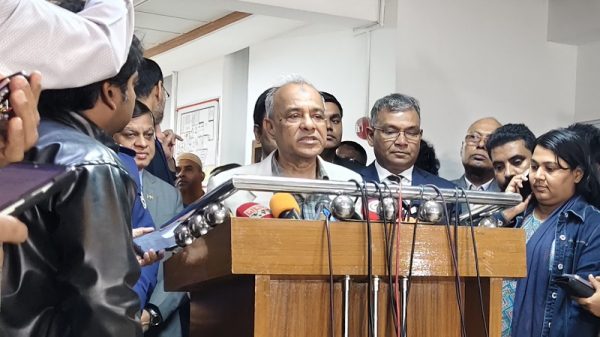
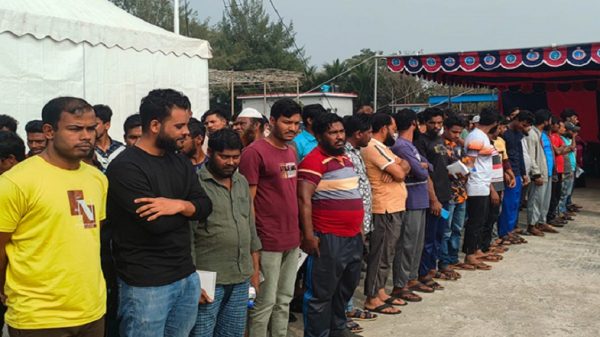

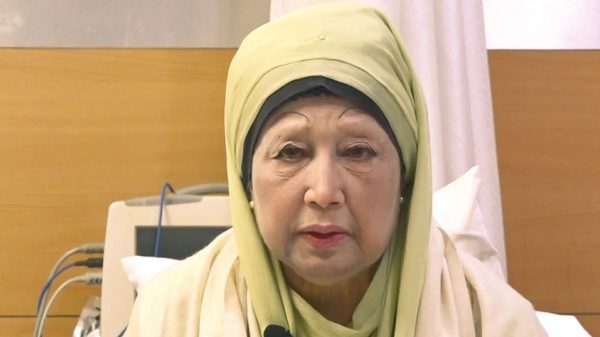



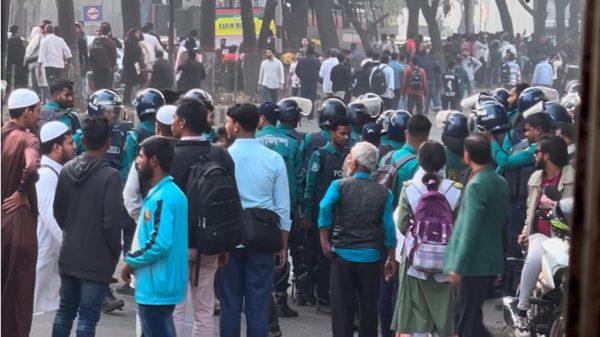
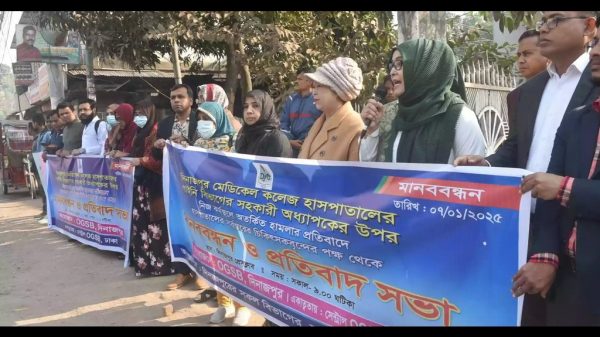












Leave a Reply